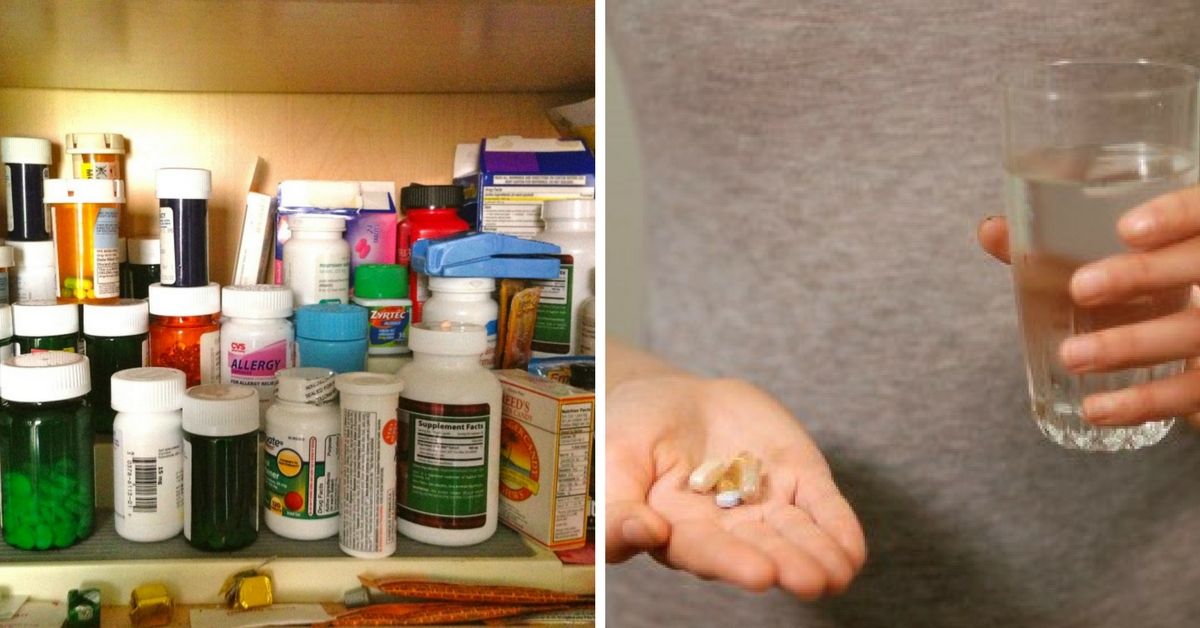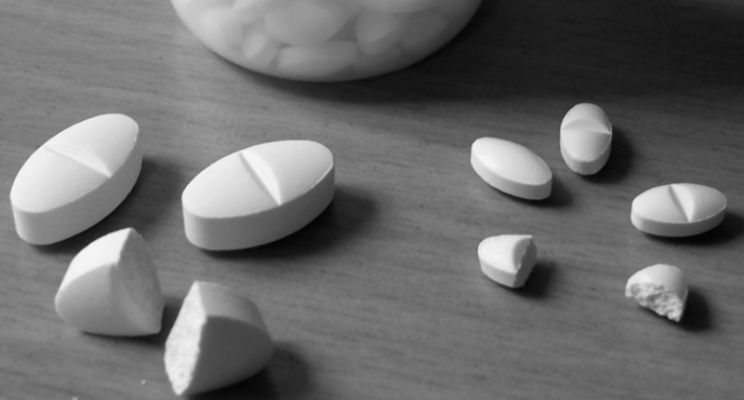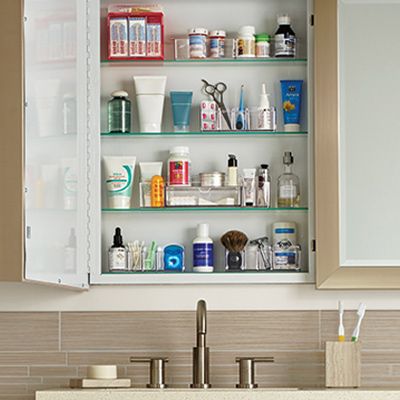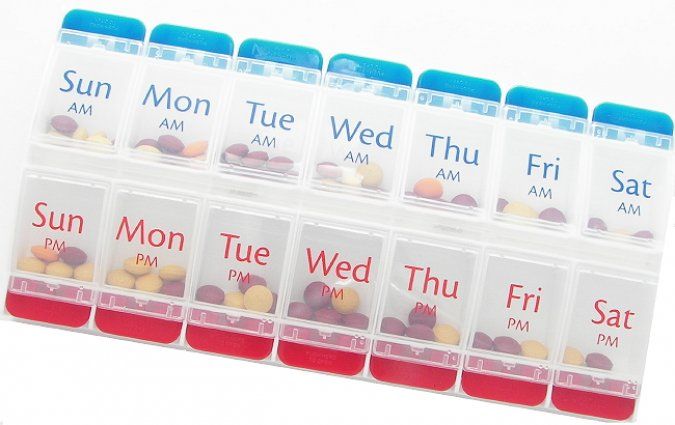None of us have ever taken a class on "how to take your pills properly," (unless you're a health care professional).
There are a lot of things doctors and pharmacists don't have time to tell us when it comes to over-the-counter and prescribed medications.
If you find that you're not feeling better after taking the medicines prescribed by your doctor, take a look at these 10 reasons why your medication may be negatively affecting your health.
1. Mixing the wrong meds
Sometimes we forget to mention to our doctors the vitamin or herbal supplements we take along with our other medications because we don't think it's a big deal.
In fact, it's a huge deal. You should talk to your doctor about all the medications you're taking, and which ones shouldn't be taken with which.
If you already know the importance of not mixing certain medications because of how it decreases the effectiveness of one or the other, then you should be thinking the same way when it comes to food.
Some foods can affect the absorption process of certain medications. For example, doctors advise people who take iron supplements to avoid eating foods high in calcium.
2. Taking too much
We're all guilty of taking too much pain medication, like Advil, Aleve, or Tylenol.
While these over-the-counter drugs are not branded to be very scary, taking a high dose can have some serious side effects.
If you're taking the right dose of medication, and you still feel sick, you may need to go to your doctor and ask if you should lower your dosage.
3. Taking a low dose
While some people don't know when to stop taking their meds, some people have no clue that they're not taking enough.
Doctors report that many people fail to take their full course of antibiotics or skip doses of medication because they're under the impression that they're getting better or they're just trying to save money.
This will just make your illness worse, and much more expensive in the long run. Take your medication, and if you're unsure about the dosage, talk to your doctor.
Most people are guilty of these next ones!
4. Splitting the wrong pills
Whether you divide a pill in half to save money or because you don't think you need that high of a dose, stop before you damage those meds.
Right when you get your medication, ask your pharmacist on whether it would be okay to split them. Certain medications, such as for heartburn and depression, have a special coating that should only be broken down inside your body.
5. Storing them in the wrong places
Most of your medicine should be stored in a cool, dry place, unless it contains probiotics, then it needs to go in the fridge.
If you're keeping them in your medicine cabinet, take them out. Your bathroom's high moisture levels are deteriorating the quality of your expensive meds.
The best place in your house to store medication is in a hallway linen closet.
6. Keeping them past their expiration date
Keep note of the expiry date of each one of your medications by highlighting the date. That way you won't be consuming meds that are ineffective during a time you need them the most.
Meds that lose their effectiveness may be the least of your worries. Some medications can become toxic once they pass their expiration date.
Doctors recommend throwing out expired eye drops, insulin, and oral contraceptives.
These next four medication mistakes are very important to keep in mind!
7. Not reading the label properly
Medicine bottles should be labeled in a way that everyone understands. While you may be able to read it with ease, understanding it and following the instructions correctly is a different story.
There are certain wordings that have a lot of people confused. For example, take "three times a day" seems to be the one many people struggle with.
It's likely that you're supposed to space out the medication throughout the day, but it's best to ask your doctor or pharmacist for the right course of action.
8. Not keeping track of your medicine
If you're taking more than two medications each day, talk to your health care professional about the best way to track all of them to make sure you're taking the right dose of each drug and consuming them consistently.
Many people use a pill organizer to keep track of their medication, but be careful you're not mixing the wrong meds! Talk to you doctor before you come up with your own solution.
9. Taking the wrong medication
If the medication you're taking is making you feel sick, you might be allergic to that brand. If you notice that you're feeling more nauseous or lightheaded than before, see your doctor immediately.
If that's not the case, there's a chance that your pharmacy made a mistake and gave you the wrong medication. According to Real Simple, one out of every 20 prescriptions filled at a pharmacy has an error.
Double check your prescription bottle every time you get a new medication or a refill!
10. Taking medication that's not advised for your age
While we're aware that babies and young children can't take the same medication adults take, there are some medications that the elderly should avoid as well.
Aging increases one's chance of getting dementia, lightheadedness, and fluctuating blood pressure, so it's important to avoid drugs that are known to have these side effects.
Ask your doctor about alternatives to avoid becoming more sick.




